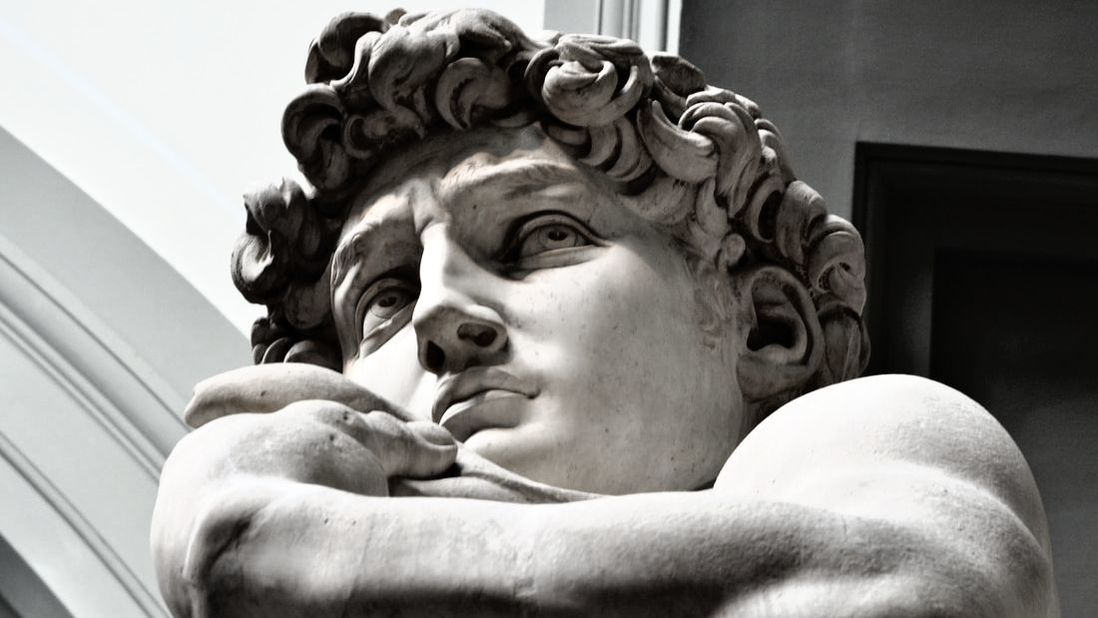Thursday of the 4th Week in Ordinary Time
Courage has to be at the heart of Christian and priestly life.
What is courage? In the Summa (II-II, q. 123), Aquinas tells us courage, or fortitude, is the virtue that keeps us from fleeing or from running away from doing the right thing because we’re afraid, and what we’re afraid of is some evil that’s difficult to overcome. He continues, specifying exactly what it is that we’re most afraid of, meaning, what courage concerns: “It belongs to the notion of virtue,” he writes, “that it should regard something extreme (right: because you practice virtue in the most difficult moments; we see how great a sports star not when he is practicing, but rather when it’s at the end of a tight competition): and the most fearful of all bodily evils is death, since it does away all bodily goods. . . .
Therefore the virtue of fortitude is about the fear of dangers of death.” Fortitude is about fear of death and dying and he adds, “it must be granted that fortitude is properly about dangers of death occurring in battle.” But Aquinas gives battle a very general sense, meaning that I’m defending some good that’s under attack. We can think of the Book of Job which reads “Man’s life on earth is warfare” (Jb 7:1). For us, the greatest goods we have are our vocations, the grace in our souls, and the holiness God is calling us to. Courage, then, is about sticking to what we know we must do, even in the midst of fear of some sort of death, be it death to popularity, death to self, physical death, and so on. This is why Pope Saint John Paul the Second writes, “the virtue of fortitude proceeds hand in hand with the capacity of sacrificing oneself.”[3] We need to be manly men, who are capable of great things and giving themselves entirely to something because we entirely possess ourselves and are willing to sacrifice ourselves.
Aquinas then goes on to make two very important points about how we practice it: first, he writes “the principal act of fortitude is endurance, that is, to stand immovable in the midst of dangers rather than to attack them.” “The principal act of fortitude is endurance, that is, to stand immovable in the midst of dangers rather than to attack them.” For the Greeks, to “merely” put up with things wasn’t courage, and our modern world thinks the same way: if you’re angry, lash out. Send the Tweet, light up Facebook like the Fourth of July, but do something. Don’t just sit there, since that’s lame and weak.
However, Aquinas gives a number of reasons why this is the case: on one hand, “because he that endures already feels the presence of danger, whereas the aggressor looks upon danger as something to come; and it is more difficult to be unmoved by the present than by the future.” The person who endures is in the thick of the danger; it’s already there. Likewise “because endurance implies length of time, whereas aggression is consistent with sudden movements; and it is more difficult to remain unmoved for a long time, than to be moved suddenly to something arduous.” Endurance implies a consistent or constant effort on the part of the one enduring.
Courage, then, means a willingness to sacrifice ourselves in order to live out our vocations fully, to defend one of the greatest goods we have that is under attack by society, the devil, and our own weaknesses. Today, we can ask ourselves about how willing we are to endure the difficult moments, and how ready we are to sacrifice things in order to be a saint. Saint Jose Maria Escriva says bluntly: “Don’t say ‘That’s the way I am- it’s my character.’ It’s your lack of character. Esto Vir – Be a man!”[4] “Don’t say ‘That’s the way I am- it’s my character.’ It’s your lack of character. Esto Vir – be a man!” We can make any number of excuses, but real courage means sacrificing and enduring, working tirelessly against our sins and imperfections. Through the intercession of Mary, Mother of all religious, we ask for the grace to be courageous and persevere in our vocations.





